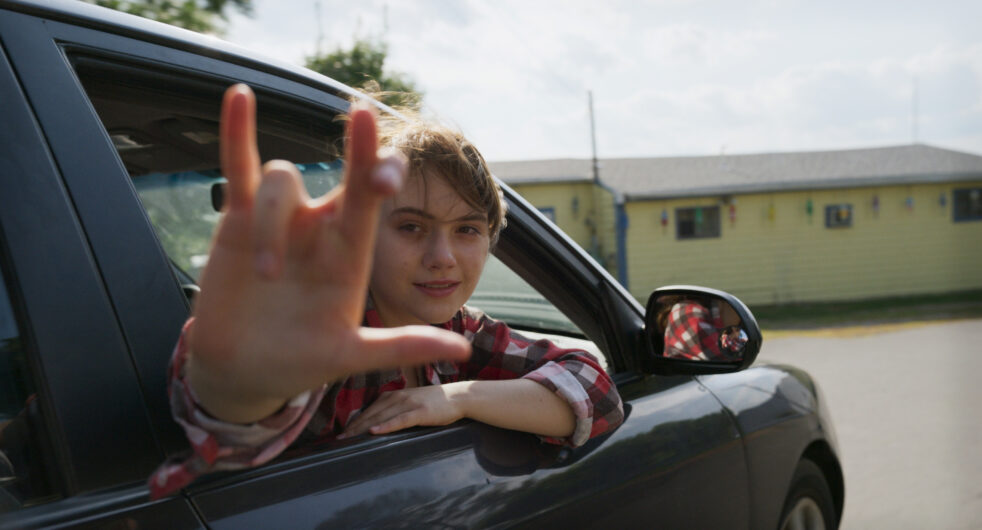Our Take: 5 Stars
When it premiered at the Sundance Film Festival in January, “CODA” (Child of Deaf Adults) instantly turned heads, winning both the Jury Grand Prize and the Audience Grand Prize. And after several months of unavailability, the film is now available to stream on Apple TV+.
A coming-of-age tale and a family drama all rolled into one heartfelt story, “CODA” gives audiences a glimpse into the lives of the deaf community. The film follows Ruby Rossi, a high school senior and the only hearing member of her family. Balanced in an almost double life, Ruby navigates her home life, where she works on her family’s fishing boat with her father and brother, and her school life, where her deaf family and her working-class background prompts many of her classmates to tease and ignore her.
Ruby is comfortable, happy even, in her role within her family and her future working in the family business, until she steps out of her comfort zone, and joins the choir. There, under the tutelage of Mr. Villalobos, she begins cultivating a passion that could alienate her from her own family, and take her far away from the family home.
This film is incredibly moving because of its authenticity. In an industry where so many characters with disabilities are portrayed by actors who are not a member of those communities themselves, an issue that dates back to the beginnings of Hollywood, writer and director Siân Heder felt it was important to embrace the deaf community in the film. Marlee Matlin (“Children of a Lesser God”), an actor who has spent her entire career breaking barriers for deaf actors, steps into the role of Jackie Rossi, Ruby’s mother, while Troy Kotsur (“Sue Thomas”) and Daniel Durant (“You”) portray Frank and Leo, Ruby’s father and older brother respectively. All are members of the deaf community.
The film works to provide a message of inclusion all throughout the story, and, for the most part, it does a very good job. Unlike many films, the deaf characters in “CODA” are not portrayed as helpless, sympathetic, or defined by their disability, but rather possess a depth of character that transcends any one aspect of them. But Heder is careful to not let the audience forget the character’s deafness. This is not a story of people overcoming a disability to have “normal” lives, but rather a story of people not defined by their disability and who do not see their disability as an obstacle to overcome.
Heder crafts a story that goes in many directions, but intertwines all of them into the delicate fabric of Ruby’s life. Lively and surprisingly funny dialogue permeates the film, warming the heart and balancing the more serious events portrayed. Each actor, whether a member of Ruby’s family or a person she meets at school, provides a convincing and grounded performance, and audiences get a much needed feel of normalcy from the film. It doesn’t feel like something crafted by Hollywood but rather feels very genuine and real. This lifelikeness is rooted in the expertly written screenplay and carefully crafted performances from every actor on screen. Emilia Jones (“Locke and Key”) shines as Ruby, bringing subtle humor and powerful emotion to the starring role. In a story like this that is so character driven, any one performance could have shattered the illusion created in the film, but no one did.
While the cinematography in the film is beautiful, it is carefully crafted so as not to be noticed. Subtle camera movements and the juxtaposition between Steadicam and handheld camera positions give small glimpses into the mental state of characters. The director and cinematographer used rather simple techniques to draw the audience in and allow them to pay attention to more important things: the life-affirming narrative, and the incredible sound design.
In a film featuring a singer and the deaf community, it makes sense that the filmmakers would carefully craft the sound of the film, weaving a transformative auditory experience into the fabric of the film. Through the sound design, Heder balances the audience alongside Ruby: between an intricate world of sounds and one of silence.
“CODA” will make you laugh, make you cry, make you want to call your parents and make you happy to be alive. It is one of the most emotionally charged and powerful films of the year, if not longer.
